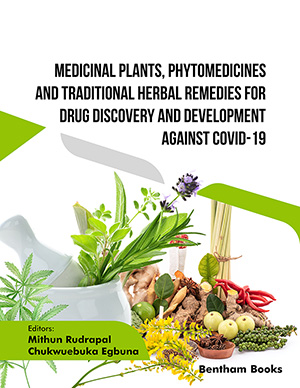Abstract
Introduction: Natural compounds obtained from marine algae, especially Rhodophyta are now being investigated for various biological activities. However, the antimicrobial activity and toxicity profile of compounds present in these algae isunderexplored.
Objective: This study procured two compounds, Debilon and Phorbasterone-B, from Rhodophyta to analyze their in silico and in vitro potential against pathogenic bacterial strains and their acute toxicity.
Methods: Debilon and Phorbasterone-B were extracted from Rhodophyta by a previously reported method and were further subsequently exploited computationally for their physicochemical properties, prediction of biological activity and molecular docking against bacterial proteins, toxicity, and experimentally for antibacterial potential against pathogenic strains of Vibrio cholera, Salmonella typhi, Escherichia coli, Enterococcus faecalis, Staphylococcus aureus, Bacillus subtilis, and Pseudomonas aeruginosa.
Results: Docking studies proved that these molecules possess a chemical affinity for the bacterial proteins and can inhibit the growth of these microorganisms, as confirmed by antibacterial assay. Whereas the prediction analysis and toxicity studies showed that the friendliness of these molecules to the human body is enormous.
Conclusion: From this study, it has been proved that DN and PB are perfect candidates for inhibiting these bacterial strains.
Keywords: Debilon, phorbasterone-B, molecular docking, swissADME, ADMET properties, antibacterial activity.




























